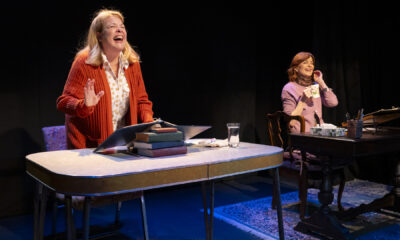Science
US Government Shutdown Disrupts Scientific Research and Innovation

The ongoing government shutdown in the United States is severely disrupting scientific research and innovation, with significant implications for federal funding and data collection. As the shutdown enters its fifth week, scientists across the country are facing financial uncertainty, affecting their ability to conduct crucial research in fields such as public health, economics, and environmental science.
When Congress fails to pass an appropriations bill by the start of the new fiscal year on October 1, a funding gap occurs, restricting government spending. Essential services, such as those provided by postal workers and air traffic controllers, continue, but nonessential personnel, including many government scientists, are barred from working and do not receive their paychecks. This shutdown has raised the stakes for scientific research dramatically, as it coincides with significant shifts in federal research policies initiated by the Trump administration.
Programs at major federal agencies involved in research and development, including the National Science Foundation and the National Institutes of Health, have halted operations. New grant opportunities are postponed, and activities at government laboratories that rely on federal funding are at a standstill. The consequences of this disruption extend beyond immediate funding issues; they threaten the integrity of the data that informs public policy and scientific understanding.
Extended shutdowns exacerbate these issues, leading to larger gaps in critical datasets, putting researchers in financial peril, and forcing academic institutions to make tough decisions about layoffs. It can take agencies months to recover from the backlog of paperwork, grant reviews, and paychecks once operations resume. The longer the shutdown lasts, the more damaging the long-term effects could become.
The Trump administration’s approach to the shutdown reflects broader ideological aims, according to Russell Vought, the director of the White House budget office. Pressure is being applied on universities to align with the administration’s views on various social issues, including campus speech and admissions policies. As the budget standoff continues, the potential for lasting damage to the relationship between the government and academic institutions grows.
Kenneth M. Evans, a Fellow at the Baker Institute for Public Policy at Rice University, emphasizes that the full impact of the shutdown may take years to fully understand. The intertwining of federal funding and scientific integrity, especially during a period of increasing international competition from nations like China, poses unique challenges for the future of American science.
The decline in international student enrollment and financial pressures on research institutions, coupled with heightened security measures against foreign interference, further complicate the landscape for American higher education. The current political climate raises questions about the sustainability of scientific progress under a government that is increasingly willing to reinterpret the law and challenge the authority of Congress.
In October 2025, the potential for an extensive reallocation of research funds looms as the Trump administration continues to assert its authority. Redirecting unspent research funding to pay federal employees exemplifies a strategy that may undermine Congress’s control over federal spending decisions. This shift in power dynamics could lead to significant changes in how research is funded and conducted in the United States.
The outcome of this prolonged disruption not only affects the scientific community but also has implications for broader issues of democracy and global competition. As the United States grapples with its position in the global scientific arena, the decisions made during this shutdown could have lasting effects on its ability to compete internationally.
The interplay between politics and science is increasingly complex, as the shutdown underscores the fragility of the systems that support research and innovation. As the situation continues to unfold, stakeholders in the scientific community remain vigilant, aware that the decisions made today will shape the future of American science for years to come.
-

 World4 months ago
World4 months agoScientists Unearth Ancient Antarctic Ice to Unlock Climate Secrets
-

 Entertainment4 months ago
Entertainment4 months agoTrump and McCormick to Announce $70 Billion Energy Investments
-

 Lifestyle4 months ago
Lifestyle4 months agoTransLink Launches Food Truck Program to Boost Revenue in Vancouver
-

 Science4 months ago
Science4 months agoFour Astronauts Return to Earth After International Space Station Mission
-

 Technology2 months ago
Technology2 months agoApple Notes Enhances Functionality with Markdown Support in macOS 26
-

 Top Stories3 weeks ago
Top Stories3 weeks agoUrgent Update: Fatal Crash on Highway 99 Claims Life of Pitt Meadows Man
-

 Sports4 months ago
Sports4 months agoSearch Underway for Missing Hunter Amid Hokkaido Bear Emergency
-

 Politics3 months ago
Politics3 months agoUkrainian Tennis Star Elina Svitolina Faces Death Threats Online
-

 Politics4 months ago
Politics4 months agoCarney Engages First Nations Leaders at Development Law Summit
-

 Technology4 months ago
Technology4 months agoFrosthaven Launches Early Access on July 31, 2025
-

 Top Stories2 weeks ago
Top Stories2 weeks agoFamily Remembers Beverley Rowbotham 25 Years After Murder
-

 Top Stories4 days ago
Top Stories4 days agoBlake Snell’s Frustration Ignites Toronto Blue Jays Fan Fury




















